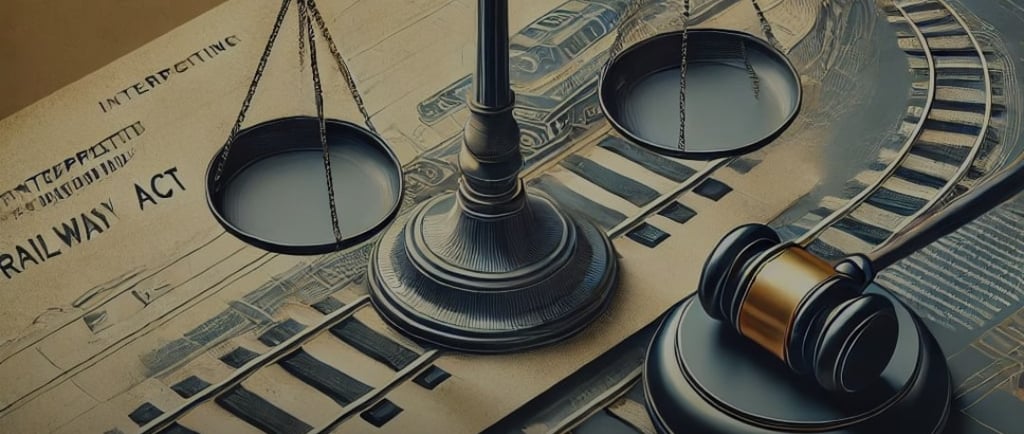Supreme Court Rules on Interpretation of Railway Act Section 143 in Criminal Appeals
The Supreme Court of India delivered a significant judgment addressing the scope of Section 143 of the Railways Act, 1989, involving two criminal appeals. The judgment settles disputes over unauthorised railway ticket procurement and supply, focusing on activities carried out through internet platforms.
1/11/20252 min read


The Supreme Court of India delivered a significant judgment addressing the scope of Section 143 of the Railways Act, 1989, involving two criminal appeals. The judgment settles disputes over unauthorised railway ticket procurement and supply, focusing on activities carried out through internet platforms.
Background:
The appeals stemmed from separate rulings by the High Courts of Kerala and Madras concerning the application of Section 143 of the Act, which penalises unauthorised business in procuring and supplying railway tickets.
Kerala High Court Case: Mathew K. Cherian, managing director of Kosamattam Finance, faced allegations of using fraudulent user IDs to sell railway tickets illegally. The Kerala High Court quashed proceedings against him, ruling that Section 143 did not cover such activities conducted via the internet.
Madras High Court Case: J. Ramesh, an authorised railway ticket agent, was accused of creating multiple user IDs to procure tickets, including Tatkal e-tickets, for illegal gain. The Madras High Court refused to quash proceedings, stating that Ramesh's actions exceeded his authorisation under the Railways Act.
Supreme Court Analysis:
Justice Dipankar Datta, delivering the judgment, clarified the ambit of Section 143, emphasising that:
The provision aims to prevent unauthorised procurement and supply of railway tickets, irrespective of the mode—physical or digital.
Advances in technology, such as e-ticketing, do not exempt individuals from compliance with the Act's intent and provisions.
The Kerala High Court erred in assuming the Act's language, crafted before e-ticketing existed, did not encompass online offences.
The court underscored the statutory principle that laws must adapt to contemporary developments if their wording permits, citing precedents where courts applied older statutes to modern contexts.
Key Findings:
Mathew's Case: The Supreme Court found that his activities, involving unauthorised procurement and sale of tickets using fraudulent user IDs, fall squarely within Section 143. The quashing order by the Kerala High Court was set aside, and the criminal proceedings were restored.
Ramesh's Case: As an authorised agent, Ramesh’s actions, while alleged to breach terms of his agreement with the railways, did not constitute a violation of Section 143. The court quashed the proceedings, advising civil remedies for breaches of contract.
Broader Implications:
The judgment affirms that Section 143 criminalises unauthorised ticketing practices to protect public interest and the integrity of Indian Railways' ticketing system. The ruling distinguishes between unauthorised operators and authorised agents accused of contractual violations, ensuring clarity in enforcing railway regulations.
The court also reinforced regulate its ticketing mechanisms effectively.
